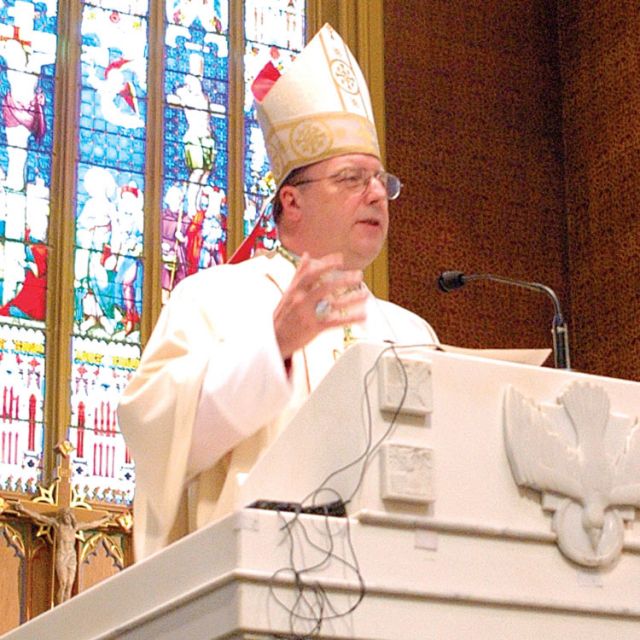TORONTO - Catholic chaplaincies are scarce on Ontario’s community colleges, but the Toronto archdiocese is trying to change that.
The archdiocese’s new pastoral plan, to be introduced in parishes the first weekend of February, includes enhancing and expanding Catholic chaplaincies in post-secondary institutions, said Neil MacCarthy, director of public relations and communications.
“Part of that discussion also includes dialogue with existing chaplaincies regarding best practices and to highlight existing chaplaincies,” he said. “We recognize that more and more students are choosing community colleges for postsecondary education… We’ve started to look at how best we can serve those audiences.”
Auxiliary Bishop John Boissonneau said getting more postsecondary students involved in Catholic chaplaincies is one of the plans priorities.
“So even though it may be a bit challenging getting there, we would be very open to receiving invitations from universities and colleges,” he said.
There are 28 community colleges across Ontario, and Kyle Ferguson, national co-ordinator of the Canadian Catholic Campus Ministry and Canadian Catholic Students’ Association, is aware of less than a handful with Catholic chaplaincies. It is the nature of these institutions that keep chaplaincies off campuses, he believes.
“They are usually a much smaller operation,” said Ferguson. “This is my gut feeling that many colleges attract students from their local city, and so many of the students are commuting from home.”
Boissonneau, the Assembly of Catholic Bishops of Ontario’s liaison for Catholic chaplaincies on campus, agrees. Community colleges are mostly commuterschools, meaning there are fewer student residences on campus. Without a significant student population living on campus, there aren’t enough students to support religious activities that would typically occur in the evening or on a weekend, he said.
“If this is the case, their (the students’) pastoral needs as Catholics are probably still being handled by their local parish,” said Ferguson.
Boissonneau cites St. Andrew’s Church in northwest Toronto as an example of a parish reaching out to Catholic students at Humber College’s North Campus.
Lack of funding also stunts the potential of a chaplaincy’s existence on campus. Ferguson said Catholic universities usually fund campus ministry with the chaplaincy being an extension of the university’s mission. He is not aware of community colleges with a Catholic identity in Canada.
“With secular university institutions, the diocese often helps support the creation of a campus ministry program, one which might operate within, or outside the school,” said Ferguson. “Part of the issue is resources, both financial and trained personnel and if there is enough of both to reach out to the community colleges.”
Community colleges, however, do partner with universities, like Ryerson University in Toronto, where students begin their degrees at the college and end at the university. These types of students will sometimes participate with the university chaplaincy while they are still enrolled in the college, said Oriana Bertucci, director at Ryerson’s Catholic Chaplaincy based out of St. Michael’s Cathedral.
Bertucci notes that enrolment at colleges in Toronto is growing and could lead to chaplaincies.
“They (colleges) do have student groups, not necessarily too huge, but they do have some student life. As those institutions mature, there will be a greater need for campus ministry on those college campuses,” she said.
“I think if you look over the past five years, the archdiocese of Toronto has really started to make a concerted effort and a commitment to university campus ministry. There’s seven of us now,” said Bertucci.
“But I would be confident to say that as we look forward, as these college campuses grow, that would be another area we have outreach for us to look to.”

